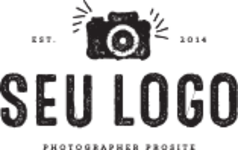Global Antimicrobial Additives Industry: Key Statistics and Insights in 2025-2033
Summary:
- The global antimicrobial additives market size reached USD 6.3 Billion in 2024.
- The market is expected to reach USD 12.2 Billion by 2033, exhibiting a growth rate (CAGR) of 6.9% during 2025-2033.
- Asia Pacific's leads the market, accounting for the largest antimicrobial additives market share.
- Antimicrobial resistance (AMR) is a global health issue, prompting greater efforts to develop products that combat resistant microorganisms.
- Antimicrobial additives play a key role in this strategy by helping to inhibit microorganism growth and reducing the reliance on stronger antimicrobial agents.
- This is especially important in healthcare environments, where antimicrobial resistance can have severe consequences.
- The demand for antimicrobial additives in medical devices, hospital equipment, and pharmaceutical packaging is being driven by the need to combat AMR and maintain effective infection control practices.
Industry Trends and Drivers:
- Increasing Demand for Hygiene and Healthcare Products:
The demand for antimicrobial additives is on the rise, driven by increased awareness of hygiene, particularly in the healthcare and consumer goods sectors. The growing emphasis on cleanliness is fueling the need for products that prevent the growth of bacteria, fungi, and viruses. This trend can be seen in medical devices, personal care items, and household products like textiles, plastics, and coatings. The healthcare industry is a key user of antimicrobial additives, largely due to the rising incidence of infectious diseases among patients.
- Rising Awareness of Food Safety:
The growing use of antimicrobial additives in the food and beverage industry is driving market expansion. Concerns about foodborne illnesses and contamination are increasing among both consumers and regulators. Antimicrobial additives help prolong the shelf life of perishable goods and inhibit the growth of harmful microorganisms in food packaging materials. As a result, there is a significant rise in the use of these additives in food contact materials and packaging. Additionally, regulations requiring the use of antimicrobial agents in specific applications are further boosting market growth.
- Technological Advancements in Additive Manufacturing:
Advances in materials science and additive manufacturing techniques are broadening the applications of antimicrobial additives. Innovations like nanotechnology are making it possible to create more effective and long-lasting antimicrobial coatings and materials. These coatings are used in medical devices, HVAC systems, and other frequently touched surfaces. Moreover, incorporating antimicrobial properties directly into the manufacturing of products like plastics and textiles is becoming more practical and cost-efficient. This integration improves the performance of these materials and expands their range of applications.
Grab a sample PDF of this report: https://www.imarcgroup.com/antimicrobial-additives-market/requestsample
Antimicrobial Additives Market Report Segmentation:
By Product Type:
- Inorganic Antimicrobial Additives
- Organic Antimicrobial Additives
Inorganic represents the largest segment as it is effective against a wide range of microorganisms, including bacteria, fungi, and viruses.
By Application:
- Plastic
- Paints and Coatings
- Pulp and Paper
- Others
Plastic holds the biggest market share due to the increasing integration of antimicrobial additives into plastic products to inhibit the growth of bacteria, fungi, and mold on the surface, thereby enhancing hygiene.
Regional Insights:
- North America (United States, Canada)
- Asia Pacific (China, Japan, India, South Korea, Australia, Indonesia, Others)
- Europe (Germany, France, United Kingdom, Italy, Spain, Russia, Others)
- Latin America (Brazil, Mexico, Others)
- Middle East and Africa
Asia Pacific's dominance in the market is attributed to the growing integration of antimicrobial additives in several products like clothing, bedding, and storage containers.
Top Antimicrobial Additives Market Leaders:
The antimicrobial additives market research report outlines a detailed analysis of the competitive landscape, offering in-depth profiles of major companies. Some of the key players in the market are:
- Avient Corporation
- BioCote Ltd
- Chroma Color Corporation
- Dow Inc.
- King Plastic Corporation
- Life Material Technologies Limited
- LyondellBasell Industries Holdings B.V.
- Microban International Ltd.
- Milliken Chemical Company (Milliken & Company)
- Sanitized AG
If you require any specific information that is not covered currently within the scope of the report, we will provide the same as a part of the customization.
About Us:
IMARC Group is a global management consulting firm that helps the world’s most ambitious changemakers to create a lasting impact. The company provide a comprehensive suite of market entry and expansion services. IMARC offerings include thorough market assessment, feasibility studies, company incorporation assistance, factory setup support, regulatory approvals and licensing navigation, branding, marketing and sales strategies, competitive landscape and benchmarking analyses, pricing and cost research, and procurement research.
Contact Us:
IMARC Group
134 N 4th St. Brooklyn, NY 11249, USA
Email: sales@imarcgroup.com
Tel No:(D) +91 120 433 0800
United States: +1-631-791-1145

